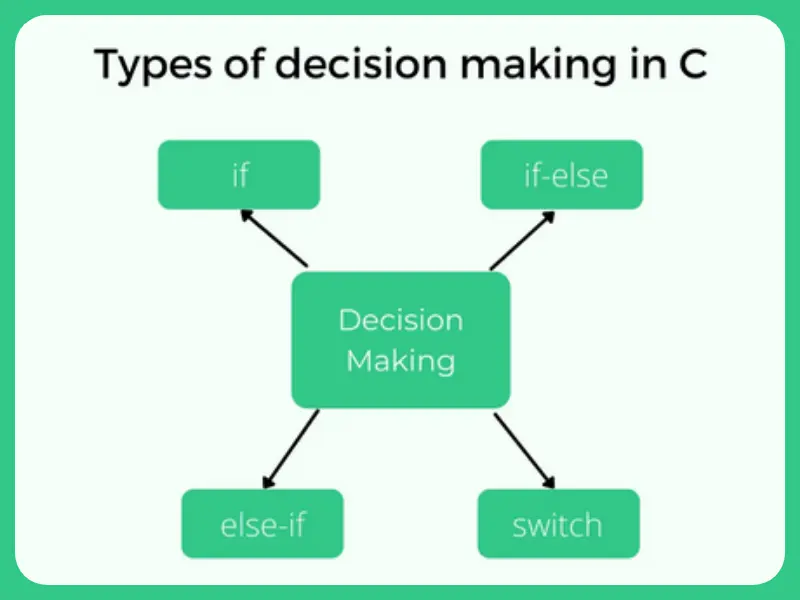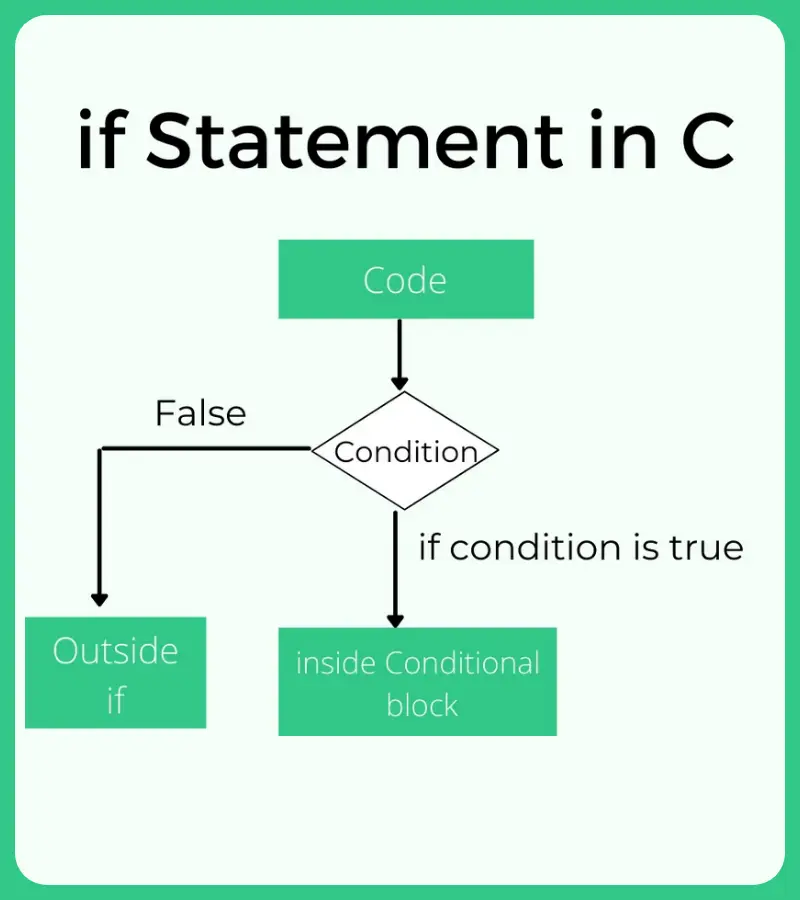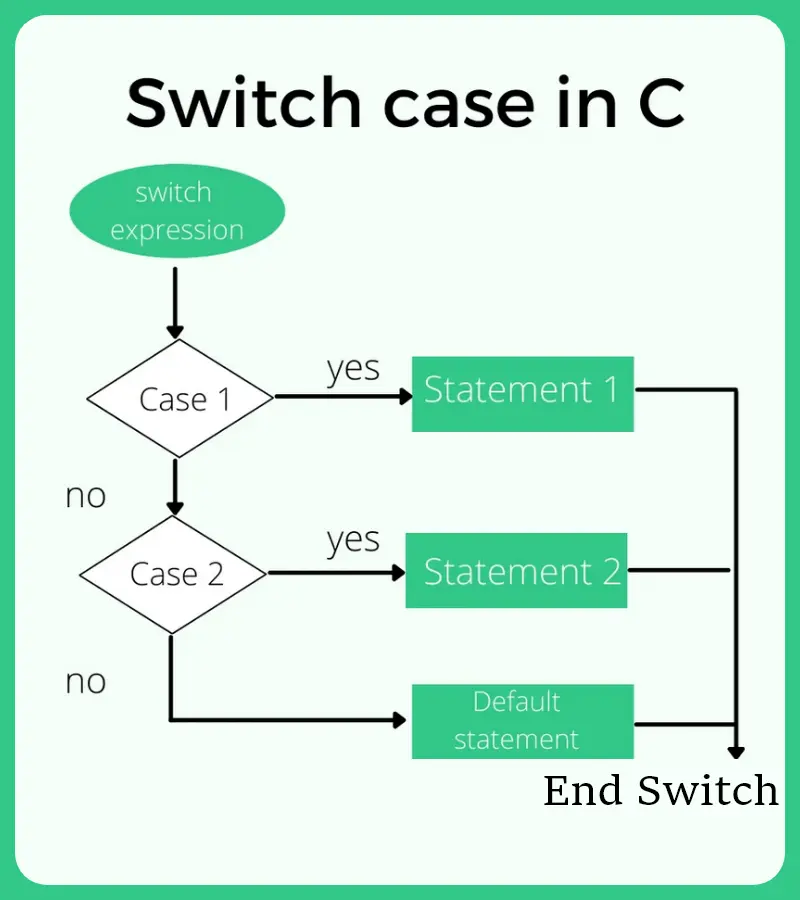0
Notifications Mark All Read
No New notification
- Login
- Get Prime
Control statements in C

Introduction to control statements
In C language we have to perform a lot of operations and to do them we have a bunch of control statements that help us to perform specific tasks . In C language you can decide which statements you want to execute in your program and which statements you want to skip. This is called decision making. Most decisions are done on a condition basis. When a particular condition arrives, you can execute the statements. Because these statements work with the conditions, they are also called conditional statements. And because they control execution in the statement program, they are also called control statements.
Control statement in C
C program is the group of two or more statements, which is sequentially executed. But sometimes programmer may need to repeat any statements many times or change the sequence of program.

If statement
- An if statement is used to make a comparison between two or more set of values, and if that condition or comparison is satisfied then the part of the code written in the if statement will get executed .
- if statement block’s is defined by curly braces{}. When the condition is true then the statement given in this block is executed.
- If the condition is false then skip the entire block.

Syntax of if statement
if(condition) { //statements to be executed if condition is true. }
Example:
#include
void main()
{
int a=8;
int b=5; //checks if a is greater than b
printf("a is greater than b");
}
Output :
a is greater than b if else statement
In some cases when if condition is not satisfied an if else statement will be the next statement that the compiler will now go to and execute if conditions matched.
if else statement is considered to be part of an if statement. But else block is added in it. The statement given in Else block is executed when the condition of if is false.
Syntax of if else statement
if(condition)
{
//statement to be executed if condition is true
}
else
{
//statement to be executed if condition is false.
Example :
#include<stdio.h> void main() { int a=8; int b=13; if(a>b) //checks if a is greater than b { printf("a is greater than b"); } else //checks if a is less than b { printf("a is less than b"); } }
Output :
a is less than b
else if statement
if you want to put another condition in the middle of if and else, then you can do this by defining else if block.
Syntax of else-if statement
if(condition)
{
//statement to be executed if condition is true
}
else if(condition)
{
//statement to be executed if else if condition is true
}
else(condition)
{
// statement to be executed if, neither if nor else if is true.
}Example:
#include<stdio.h> void main() { int a=5; int b=5; if(a>b) //checks if a is greater than b { printf("a is greater than b"); } else if(a<b) //checks if a is less than b { printf("a is less than b"); } else { printf("a is equal to b"); } }
Output :
a is equal to b
There are a lot of other comparisons we can do in an if statement like
if(a==b) //if a is equal to b if(a!=b) //if a is not equal to b if(a==b && a>5) //if a is equal to b and a is greater than 5 if(a==b || a>5) //if a is equal to b or a is greater than 5
Switch cases
In a switch case we provide (or take input from the user) a key and give it to the switch and the switch compares that value with its cases and if it is equal it will execute that case and if no cases match then it runs a default case.

Syntax of switch case
switch(value)
{ case (condition):
//statement to be executed if condition is true
break;
case (condition):
//statement to be executed if condition is true
break;
default:
//statement to be executed if none of the case is true
}
Example
#include<stdio.h>
int main()
{
int a=3;
switch(a) //value of 3 is given to switch
{
case 1 : //checks if a is equal to 1
printf("One");
break; //jumps out of all switch cases
case 2 : //checks if a is equal to 2
printf("Two");
break; //jumps out of all switch cases
default :
printf("No values matched");
}
}
Output :
No values matched
Prime Course Trailer
Related Banners
Get PrepInsta Prime & get Access to all 200+ courses offered by PrepInsta in One Subscription
Get over 200+ course One Subscription
Courses like AI/ML, Cloud Computing, Ethical Hacking, C, C++, Java, Python, DSA (All Languages), Competitive Coding (All Languages), TCS, Infosys, Wipro, Amazon, DBMS, SQL and others

 0
0


In “Control statements in C” the “program of else is statement” is not correct, the else if condition is not correct that is (a>b) which has been checked already so is must be (a<b). hope you will correct that. Thnakyou….
Thanks Shubham , we’ve fixed it